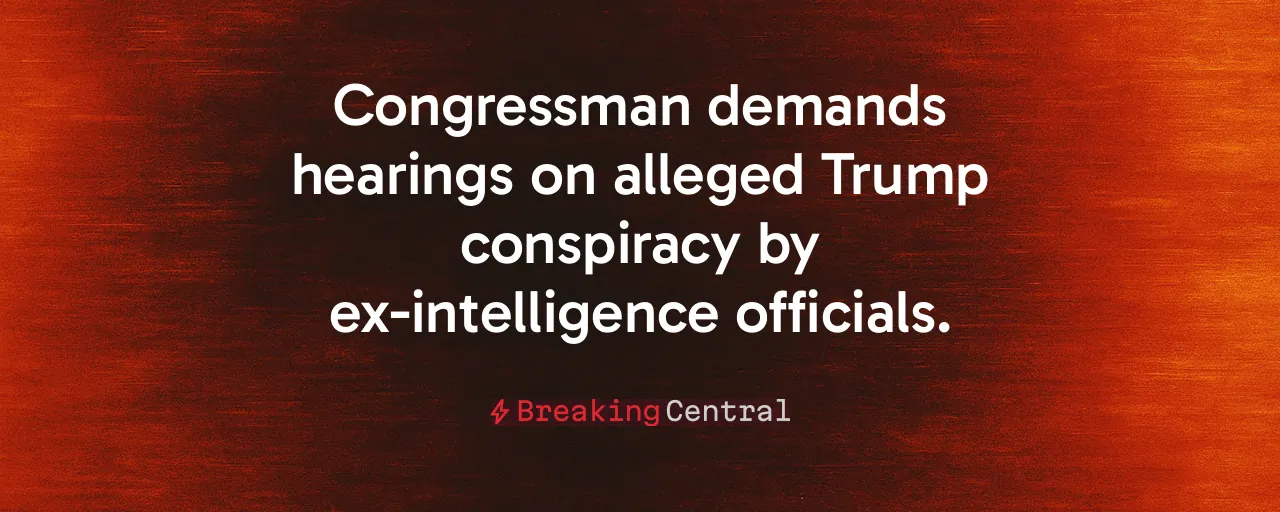A Demand for Answers
Florida Congressman Greg Steube issued a strong call by urging House Intelligence Committee Chairman Mike Turner to summon three former intelligence giants, James Comey, James Clapper, and John Brennan, for questioning. His call, amplified by political commentator Benny Johnson in a July 2025 video clip, centers on allegations of a 2017 conspiracy to undermine then-President Donald Trump. Steube emphasizes these officials face scrutiny over their roles in the Intelligence Community Assessment on Russian election interference, a document that shaped a turbulent chapter in American politics.
Steube argues that the 2017 assessment, paired with early leaks tied to the FBI's Crossfire Hurricane investigation, was a calculated move to delegitimize Trump's presidency. He demands sworn testimony, warning of criminal prosecutions if the trio provides false statements. This bold push reopens a wound in the nation's trust, raising questions about the integrity of institutions meant to protect democracy.
For many Americans, the issue transcends partisan lines. Trust in federal agencies has eroded as allegations of politicized actions surface. Steube's demand taps into a broader desire for transparency, accountability, and a government focused on serving the people. The question now is whether Congress will act to restore that confidence.
The Roots of Distrust
In 2016, Russia's interference through hacking and influence operations was undeniable, as confirmed by multiple investigations. The Intelligence Community, led by Comey, Clapper, and Brennan, produced a January 2017 assessment concluding Russia aimed to sway the election. However, a 2025 CIA review raised red flags, alleging the trio's excessive involvement skewed the process, deviating from standard analytic practices.
Adding to the skepticism, a 2019 Department of Justice Inspector General report exposed 17 errors in FISA warrants targeting Trump aide Carter Page, relying on the controversial Steele dossier. A 2023 Durham report criticized the FBI's Crossfire Hurricane probe for weak predication. These findings paint a troubling picture of procedural lapses at the highest levels, suggesting a rush to judgment that may have prioritized narrative over evidence.
Public faith in intelligence agencies plummeted, with polls showing growing distrust across political spectrums. For those who value limited government and individual liberty, these revelations underscore the dangers of unchecked power, where surveillance tools can be misused against citizens.
Why Accountability Matters
Steube's call for testimony aims to safeguard the future, not merely relitigate the past. If senior officials manipulated intelligence to target a president, the implications are profound. It erodes the rule of law, where no one is above scrutiny, and threatens civil liberties through politicized surveillance. A 2020 RAND study noted that rushed intelligence assessments risk shortcuts, amplifying errors or bias, a concern echoed by the CIA's recent findings.
The push for accountability aligns with a core principle, equal justice. While some defend the 2017 assessment, citing a 2020 Senate review that found no major flaws, the irregularities warrant attention. Comey's unauthorized memo leaks, as rebuked by a 2019 Inspector General report, set a precedent for distrust. Holding leaders to account ensures institutions serve the public interest, free from personal or political agendas.
There is a practical need for this. Prolonged investigations, costing millions, strain public resources and shake economic confidence. Transparent hearings could clarify truths, rebuild trust, and signal to adversaries that America's institutions are resilient.
A Blueprint for Reform
Steube's demand is a stepping stone to broader solutions. Compelled testimony under oath could uncover whether the 2017 assessment was tainted by bias, paving the way for reforms. One proposal is stricter oversight of intelligence product drafting, limiting leadership's ability to steer outcomes. A bipartisan commission could audit past assessments, recommending standardized timelines to prevent rushed judgments.
FISA reforms are also critical. The 2019 Inspector General's findings on warrant errors demand tighter auditing and renewal limits to protect civil liberties. Some advocate abolishing Section 702 reauthorizations unless past misconduct faces consequences, ensuring surveillance powers are not abused. These steps prioritize transparency and accountability, values central to a free society.
Compromise is possible. Both parties could support closed-door interviews to avoid public spectacles while releasing declassified transcripts for transparency. Such measures balance the need for truth with protecting sensitive intelligence methods, fostering unity in a polarized era.
Restoring Faith in Institutions
Steube's call to question Comey, Clapper, and Brennan is a pivotal moment. It is a chance to confront uncomfortable truths about the 2017 assessment and its fallout. By demanding answers, Congress can reaffirm that no one is above the law, a principle that resonates with Americans weary of double standards.
The path forward lies in action. Testimony, reforms, and transparency can rebuild trust in institutions battered by years of controversy. This is about ensuring government serves the people, not power. The public deserves clarity, and Congress has the tools to deliver it.
The outcome will shape how future generations view the balance between security and liberty. A commitment to truth and accountability today can strengthen democracy tomorrow, proving that America's institutions can withstand scrutiny and emerge stronger.
